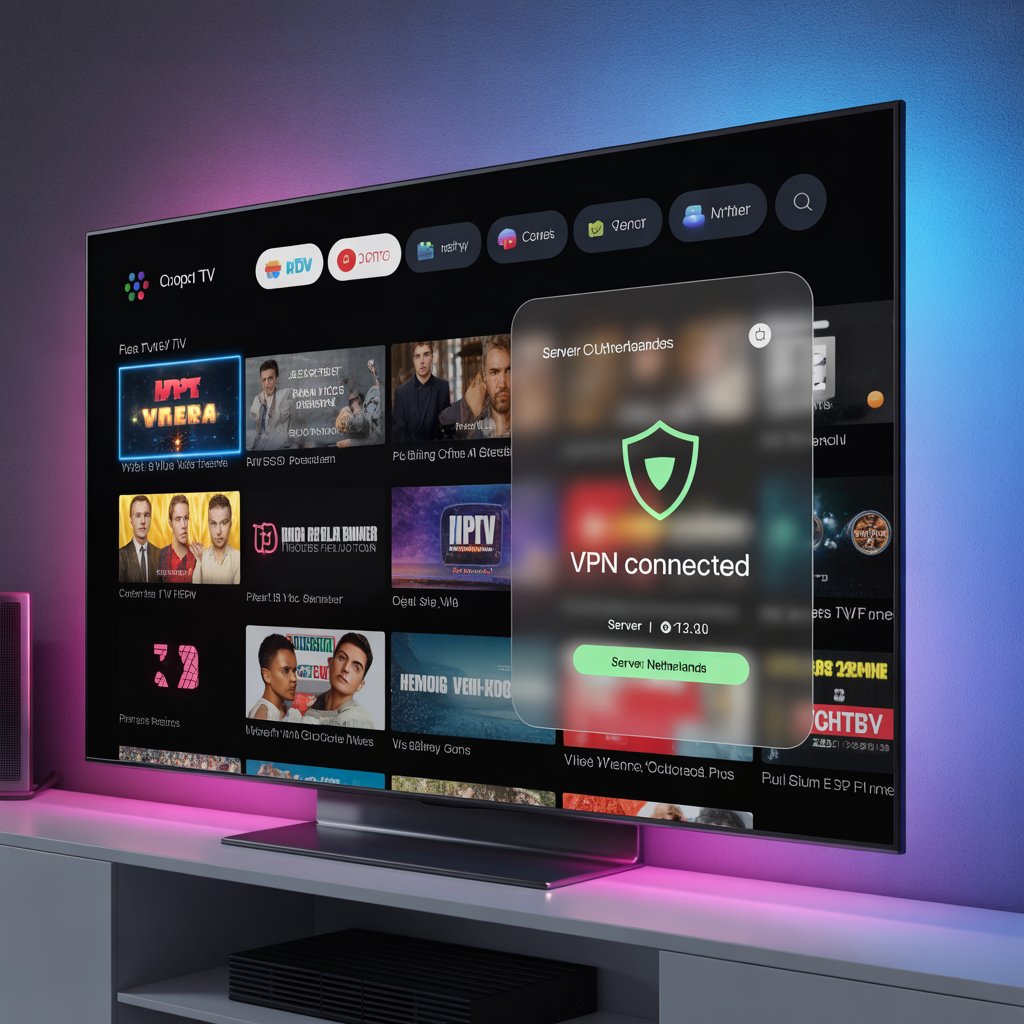IPTV with vpn Informational

IPTV with vpn informational — The Complete Informational Guide
Definition: “iptv with vpn” means using a Virtual Private Network together with Internet Protocol Television to stream content more privately, avoid throttling, and access geo‑restricted channels.
Quick overview
Using iptv with vpn is a practical approach for viewers who want better privacy and control over their streaming. When you combine IPTV services with a VPN, you encrypt your connection and can usually access content that would otherwise be blocked in your region.
Who is this guide for?
This guide is written in a clear, professional tone for beginners and intermediate users who want a practical, reliable explanation of iptv with vpn. If you manage home networks, use smart TVs, or enjoy live sports and international channels, this article is for you.
What is IPTV and why pair it with a VPN?
IPTV (Internet Protocol Television) delivers live channels and on‑demand video over the internet. Pairing IPTV with a VPN gives three main benefits: privacy, bypassing geo‑blocks, and reducing ISP throttling. A VPN encrypts your traffic and masks your IP address so your activity (including IPTV streams) is far less visible to third parties.
Key benefits at a glance
- Better privacy when streaming IPTV with VPN compared to streaming without encryption.
- Access region‑locked channels by connecting to servers in other countries.
- Lower risk of ISP throttling for streaming traffic, improving stability.
How iptv with vpn works
The concept is straightforward: a VPN client on your device or router encrypts outgoing traffic. When you start an IPTV app, your requests are routed through the VPN server. The IPTV host sees the VPN server’s IP and location rather than your real IP. This means—when correctly configured—you can watch IPTV streams with extra privacy and bypass some region checks.
Technical flow (simple)
- Subscribe to a legitimate IPTV service.
- Install a reputable VPN on the streaming device or router.
- Connect to a VPN server (choose location based on speed or content access).
- Open IPTV app and stream as usual.
Choosing the right VPN for IPTV
Not all VPNs are equal when it comes to iptv with vpn. Prioritize providers that advertise streaming‑optimized servers, a large global network, strong performance, and privacy assurances.
Must‑have VPN features
- High throughput & low latency: streaming live channels needs bandwidth.
- Multiple server locations: needed to unlock region‑locked channels.
- No‑logs policy: true privacy depends on the provider’s policies.
- Router support: for devices that cannot run a VPN app directly.
- Kill switch & leak protection: essential safety features for IPTV with VPN setups.
Device compatibility and setup options
Most modern VPNs support Windows, macOS, Android, and iOS. Smart TVs and dedicated IPTV boxes may require VPN at the router level. Here are common setup patterns for iptv with vpn:
Supported setups
- Native VPN app: best for phones, tablets, and some smart TVs.
- Router‑level VPN: covers all devices on the home network, ideal for Fire TV, IPTV boxes, and smart TVs without native VPN support.
- Split tunneling: lets you route only IPTV traffic through the VPN while keeping other traffic local.
- Smart DNS + VPN: some services combine Smart DNS for unblocking with VPN for privacy—helpful on devices that don’t accept VPN apps.
Step‑by‑step: set up IPTV with VPN
Follow these steps to set up a reliable iptv with vpn configuration:
- Select a reputable, streaming‑friendly VPN provider and create an account.
- Install the VPN on your device or follow the provider’s router instructions.
- Enable the kill switch and DNS leak protection in the VPN settings.
- Connect to a server near you for best speed, or to the country that matches the content you want to access.
- Open your IPTV app or player and test a few channels to ensure playback is stable.
- If buffering occurs, switch servers, check local network congestion, or test a different VPN protocol (e.g., WireGuard).
Performance tips when streaming IPTV with VPN
Streaming performance depends on multiple factors. When using iptv with vpn, try these optimizations:
- Use a wired Ethernet connection for your streaming device where possible.
- Choose VPN servers geographically close to you unless you must reach a distant region for content.
- Use modern protocols (WireGuard or OpenVPN UDP) for better speed.
- Limit other heavy network usage (large downloads, cloud backups) while streaming.
Legal, ethical, and terms‑of‑service considerations
Pairing IPTV with a VPN is a technical tool; the legality depends on content licensing and local law. Using a VPN does not legalize unlicensed streams. Always verify that your IPTV provider holds the proper rights for the channels they offer.
Best practice checklist
- Prefer licensed, reputable IPTV services.
- Read the terms of service for both your VPN and IPTV provider.
- Check local laws around copyright and streaming in your country.
Common questions about IPTV with VPN
Will a VPN speed up my IPTV?
Not directly. Encryption adds overhead, but if your ISP is throttling streaming traffic, then using iptv with vpn may result in faster real‑world performance by preventing throttling.
Are free VPNs OK for IPTV?
Generally no. Free VPNs often impose data caps, limit speeds, and have fewer servers—this can ruin the streaming experience and risk privacy.
Can I use a VPN to watch content from another country?
Yes, connecting to a VPN server in a target country can let your IPTV appear to originate from that country. But note that some streaming platforms actively block known VPN servers.
Troubleshooting guide
If you have issues using iptv with vpn, try the following:
- Switch VPN servers—performance varies by server load.
- Try a different VPN protocol (WireGuard often helps).
- Check your base internet speed without VPN to ensure ISP bandwidth is sufficient.
- Update firmware on your router or IPTV device and the VPN client.
- Contact VPN support—many providers offer streaming‑focused guidance for IPTV setups.
Security best practices
To keep an effective iptv with vpn setup you should:
- Enable multi‑factor authentication (MFA) for accounts when available.
- Keep passwords unique and use a password manager.
- Enable the VPN kill switch to avoid accidental IP leaks.
- Monitor VPN provider updates for security and performance improvements.
Resources & further reading
Use these placeholders to link related content and credible external sources:
Conclusion
In short, using iptv with vpn gives you better privacy, more content flexibility, and a higher chance of consistent streaming performance. Make sure to choose a fast, reputable VPN, confirm your IPTV provider is licensed, and follow the configuration and security tips above.
